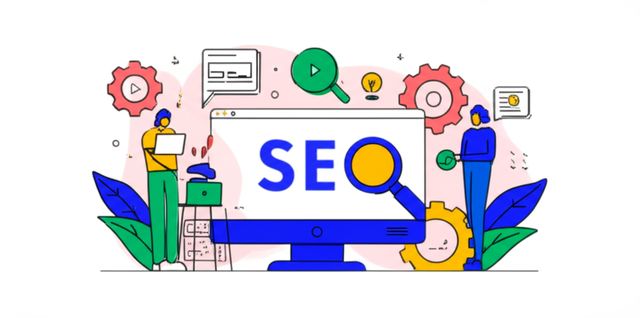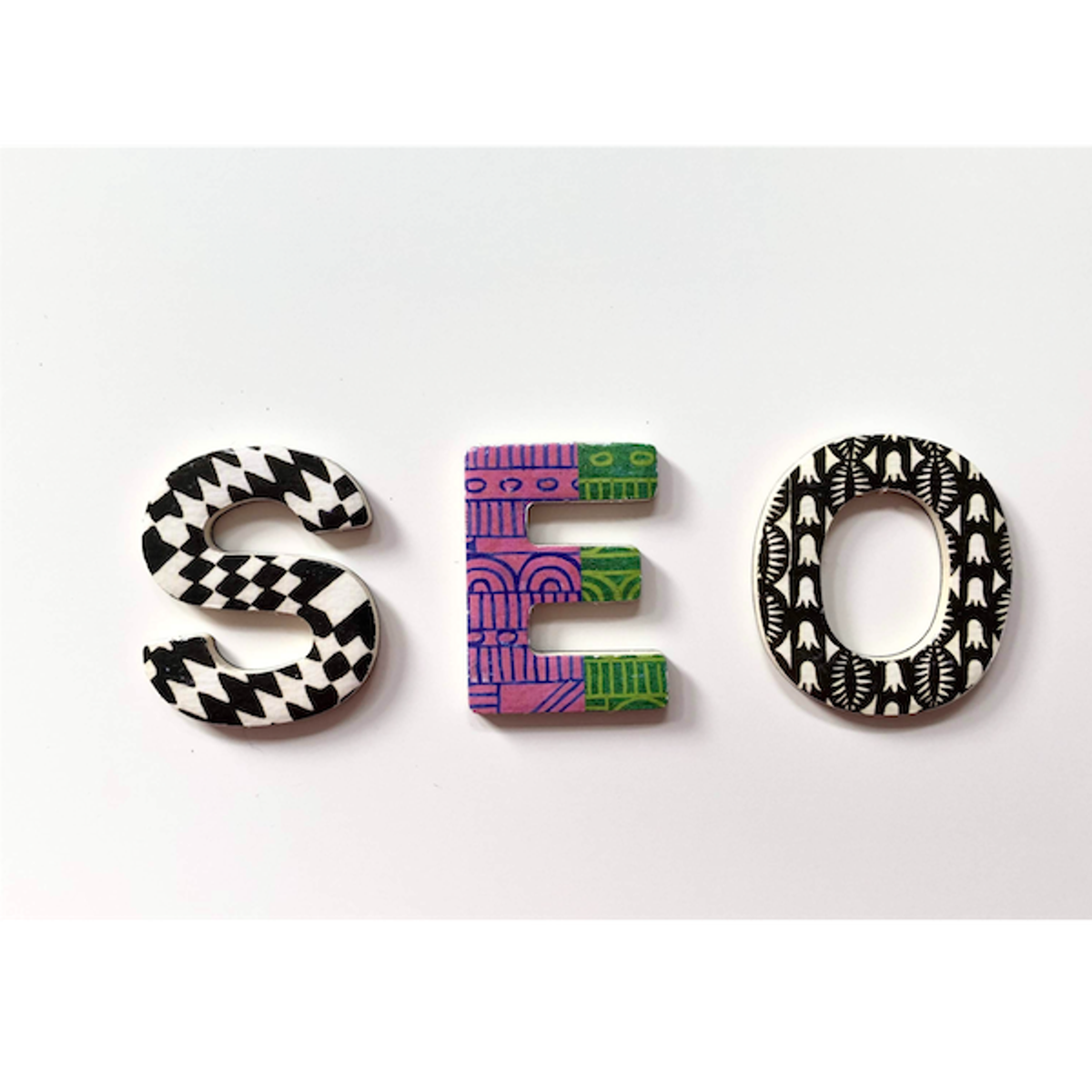Search Engine Optimization (SEO)
Comprehensive Guide to Search Engine Optimization (SEO)
Search Engine Optimization, or SEO, is the practice of enhancing a website or web page to increase its visibility when people search for products, services, or information on search engines like Google, Bing, and others. At its core, SEO aims to improve a website's ranking in search engine results pages (SERPs), making it more likely that users will find and visit the site. This involves a multifaceted approach that considers how search engines work, what people search for, the actual search terms or keywords typed into search engines, and which search engines are preferred by their targeted audience.
Working in SEO can be an engaging and exciting prospect for many. One thrilling aspect is the dynamic nature of the field; search engine algorithms are constantly evolving, requiring SEO professionals to be lifelong learners and adapt their strategies accordingly. Another appealing element is the direct impact one can have on a business's success. By improving a website's visibility, SEO practitioners can significantly increase organic (non-paid) traffic, leading to more potential customers and revenue. Finally, the analytical and problem-solving nature of SEO can be deeply satisfying, as it involves dissecting data, understanding user behavior, and creatively implementing solutions to improve search performance.
Introduction to Search Engine Optimization (SEO)
This section will lay the groundwork for understanding what SEO is and why it's a critical component of any online presence. We will explore its fundamental concepts and historical context.
Definition and Purpose of SEO
Search Engine Optimization (SEO) encompasses a set of strategies and techniques aimed at increasing the quantity and quality of traffic to a website through organic search engine results. The primary purpose of SEO is to make a website more attractive to search engines and users, ultimately leading to higher rankings for relevant search queries. This means understanding what your potential customers are searching for and ensuring your website provides the information they need in a way that search engines can easily find and understand. Effective SEO helps businesses connect with their target audience at the moment they are actively seeking information, products, or services.
Think of a massive library with millions of books (websites). A search engine is like a highly intelligent librarian. When someone comes looking for a specific topic (a search query), the librarian quickly scans all the books and suggests the ones that are most relevant and authoritative. SEO is the process of making sure your "book" is well-organized, clearly labeled with the right topics (keywords), and recommended by other reputable "books" (backlinks), so the librarian is more likely to recommend it to those seeking what you offer.
The ultimate goal is not just to attract any visitors, but to attract visitors who are genuinely interested in the content, products, or services your website provides. This focus on relevance and quality traffic is what distinguishes SEO from other forms of online marketing. It’s about creating a user-friendly and authoritative online presence that naturally draws in your ideal audience.
Historical Evolution of SEO Practices
The history of SEO is intrinsically linked to the emergence and evolution of search engines themselves. In the early days of the internet, around the mid-1990s, search engines were relatively rudimentary. Website owners quickly realized the value of appearing in search results and began employing basic optimization tactics. Initially, this often involved simply registering websites with search engines and ensuring the site was categorized correctly. Some early techniques focused on manipulating alphabetical listings by starting website names with "AAA" or "#1".
The term "Search Engine Optimization" is believed to have been first used around 1997. As search engines grew more sophisticated, so did SEO practices. Early algorithms relied heavily on on-page factors like keyword density and meta tags. This led to an era of "keyword stuffing," where websites would excessively repeat keywords to try and rank higher. However, search engines like Google, which introduced its PageRank algorithm in 1998, began to prioritize more complex factors, such as the quality and quantity of backlinks (links from other websites). This marked a significant shift towards rewarding websites that provided genuine value and authority.
Over the years, search engine algorithms have undergone numerous updates (like Google's Panda and Penguin updates) aimed at combating manipulative tactics and improving the quality of search results. This constant evolution has pushed SEO practitioners to adopt more ethical and user-centric strategies, focusing on creating high-quality content, ensuring a positive user experience, and building genuine relationships online. The field has moved from simple keyword matching to understanding user intent and semantic search.
Core Objectives: Visibility, Relevance, and User Experience
The core objectives of SEO can be distilled into three interconnected pillars: visibility, relevance, and user experience. Firstly, visibility refers to how prominently a website appears in search engine results for relevant queries. The higher a website ranks, the more likely users are to see it and click on it. Increased visibility is the most immediate and measurable outcome of successful SEO efforts.
Secondly, relevance is about ensuring that the content on a website closely matches the search terms and intent of the users. It's not enough to simply attract visitors; the visitors must find what they are looking for. Search engines strive to provide the most relevant results for their users, so aligning website content with user queries is crucial for achieving and maintaining high rankings. This involves thorough keyword research and creating content that comprehensively addresses the user's needs.
Finally, user experience (UX) has become an increasingly important aspect of SEO. Search engines aim to recommend websites that offer a positive experience to their visitors. This includes factors like website speed, mobile-friendliness, ease of navigation, and engaging content. A good user experience not only helps with SEO but also contributes to higher conversion rates and customer satisfaction. Essentially, if users have a good experience on a site, they are more likely to stay longer, engage with the content, and return in the future, all ofwhich are positive signals to search engines.
Basic Terminology (e.g., SERPs, Keywords, Backlinks)
To understand SEO, it's helpful to become familiar with some basic terminology. SERPs, or Search Engine Results Pages, are the pages displayed by search engines in response to a user's query. These pages typically list a series of results that the search engine has determined are relevant to the search terms entered.
Keywords are the words and phrases that users type into search engines when looking for information. In the context of SEO, keywords are the terms that a website owner wants their site to rank for. Effective keyword research involves identifying the terms their target audience is using and incorporating them naturally into their website content. For example, if you sell handmade coffee mugs, relevant keywords might include "handmade ceramic mugs," "unique coffee cups," or "artisan pottery mugs."
Backlinks, also known as inbound links, are links from one website to another. Search engines like Google consider backlinks as votes of confidence or recommendations. Generally, the more high-quality and relevant backlinks a website has, the more authoritative it is perceived to be, which can lead to higher rankings. Imagine if several well-respected coffee bloggers linked to your handmade mug website; this would signal to search engines that your site is a valuable resource in that niche.
These foundational courses can help you build a strong understanding of these core SEO concepts:
For those looking for a comprehensive introductory text, these books are excellent starting points:
Core Concepts and Techniques
This section delves into the practical strategies and methodologies that form the backbone of effective SEO. We will explore the different facets of optimizing a website both internally and externally.
On-Page vs. Off-Page SEO
SEO strategies are broadly categorized into two main types: on-page SEO and off-page SEO. On-page SEO refers to all the optimization efforts undertaken directly within your own website to improve its position in search rankings. This includes optimizing content, title tags, meta descriptions, header tags, images, and internal linking. Essentially, it's about making your website's content and structure as search engine friendly and user-friendly as possible. For example, ensuring your blog posts have clear titles, use relevant keywords naturally, and have images with descriptive alt text are all on-page SEO practices.
On the other hand, off-page SEO involves actions taken outside of your own website to impact your rankings within search engine results pages. The most significant off-page SEO factor is typically link building – acquiring high-quality backlinks from other reputable websites. Other off-page activities can include social media marketing, guest blogging, influencer outreach, and brand mentions. These activities help to build your website's authority, credibility, and relevance in the eyes of search engines and users.
Both on-page and off-page SEO are crucial for a comprehensive and successful SEO strategy. On-page SEO lays the foundation by ensuring your website is optimized correctly, while off-page SEO helps to build its reputation and authority across the web. Neglecting one in favor of the other will likely limit your overall SEO performance.
These courses offer a solid introduction to both on-page and off-page SEO techniques:
For a deeper dive into these concepts, consider the following highly-regarded book:
Keyword Research and Intent Analysis
Keyword research is a fundamental process in SEO that involves identifying the specific words and phrases your target audience uses when searching for information, products, or services related to your business. It's not just about finding high-volume keywords; it's about finding the right keywords that align with what your website offers and what your audience is truly looking for. Tools like Google Keyword Planner, Ahrefs, SEMrush, and Moz Keyword Explorer can help in this process by providing data on search volume, keyword difficulty, and related terms.
Beyond just identifying keywords, intent analysis is crucial. User intent refers to the underlying reason or goal behind a search query. Search queries can generally be categorized into four main types of intent:
- Informational: The user is looking for information (e.g., "how to bake a cake," "what is SEO").
- Navigational: The user wants to find a specific website or page (e.g., "OpenCourser blog," "Facebook login").
- Transactional: The user intends to make a purchase or complete a specific action (e.g., "buy running shoes online," "SEO course discount").
- Commercial Investigation: The user is comparing products or services before making a purchase decision (e.g., "best SEO tools," "iPhone vs. Android").
Understanding user intent allows you to create content that directly addresses their needs, leading to higher engagement and better rankings. For instance, if a user searches for "best running shoes," they are likely in the commercial investigation phase. Content that provides reviews, comparisons, and buying guides would be most relevant. If they search "buy Nike Air Zoom Pegasus," their intent is transactional, and a product page where they can make a purchase would be the appropriate destination.
Effectively combining keyword research with intent analysis ensures that you are not only targeting the right terms but also providing the most valuable and appropriate content for each stage of the user's journey. This synergy is key to attracting qualified traffic and achieving your SEO goals.
To learn more about keyword research and intent analysis, these courses provide valuable insights:
Technical SEO (e.g., Crawlability, Site Speed)
Technical SEO refers to the process of optimizing your website's infrastructure to help search engine crawlers (bots or spiders) find, understand (crawl), and index your content more effectively. It forms the foundation upon which all other SEO efforts are built. If search engines can't properly access and interpret your site, even the best content and link-building strategies will fall short.
Key aspects of technical SEO include:
-
Crawlability: Ensuring that search engine bots can easily access and navigate all the important pages on your website. This involves optimizing your
robots.txtfile, creating an XML sitemap, and ensuring a logical internal linking structure. - Indexability: Making sure that search engines can add your website's pages to their vast database (index) to be displayed in search results. Issues like "noindex" tags or improper canonicalization can prevent pages from being indexed.
- Site Speed: How quickly your web pages load. Faster loading times improve user experience and are a confirmed ranking factor for Google. Optimizing images, leveraging browser caching, and minifying code can help improve site speed.
- Mobile-Friendliness: Ensuring your website provides a good experience on mobile devices. With Google's move to mobile-first indexing, a responsive and mobile-friendly design is essential.
- Website Architecture: The way your website is structured and how pages are organized. A clear and logical site architecture makes it easier for both users and search engines to navigate and find content.
- Security (HTTPS): Using HTTPS (Hypertext Transfer Protocol Secure) encrypts data exchanged between a user's browser and your website, providing a secure connection. HTTPS is a minor ranking signal.
- Structured Data Markup: Adding specific code (like Schema.org markup) to your website to help search engines better understand the content on your pages and enable rich snippets in SERPs (e.g., ratings, prices, event information).
Addressing technical SEO issues is crucial for ensuring your website can be efficiently crawled and indexed, which is a prerequisite for ranking in search results. It also directly impacts user experience, as a technically sound website is typically faster, more secure, and easier to use.
The following courses can help you understand the intricacies of technical SEO:
You may also be interested in these topics related to the technical aspects of web presence:
Content Optimization Strategies
Content optimization is the process of refining your website's content to make it more appealing, valuable, and discoverable to both search engines and your target audience. It goes beyond simply inserting keywords and involves creating high-quality, engaging, and relevant material that satisfies user intent. High-quality content is a cornerstone of modern SEO.
Key content optimization strategies include:
- Keyword Integration: Naturally incorporating target keywords into your page titles, headings, body text, image alt text, and meta descriptions. The goal is to make it clear to search engines what your content is about without sacrificing readability or sounding unnatural (avoiding keyword stuffing).
- High-Quality Writing: Creating well-written, grammatically correct, and easy-to-understand content. Content should be comprehensive, accurate, and provide real value to the reader.
- Content Structure and Readability: Using clear headings (H1-H6 tags), short paragraphs, bullet points, and white space to make content easy to scan and digest. Good formatting improves user experience and helps search engines understand the hierarchy of your information.
- Multimedia Integration: Incorporating relevant images, videos, infographics, and other multimedia elements can make content more engaging and shareable. Ensure that multimedia is optimized for speed and accessibility (e.g., using descriptive alt text for images).
- Internal Linking: Linking to other relevant pages within your own website. Internal links help search engines discover more of your content and understand the relationships between different pages. They also help users navigate your site and find more information.
- Freshness and Updates: Regularly updating existing content to ensure it remains accurate, relevant, and up-to-date. Search engines often favor fresh content, especially for time-sensitive topics.
- Satisfying User Intent: Creating content that directly addresses the questions, needs, and goals of your target audience for specific keywords. This involves understanding the different types of user intent (informational, navigational, transactional, commercial).
- Call to Actions (CTAs): Guiding users on what to do next, whether it's reading another article, signing up for a newsletter, or making a purchase.
Optimized content not only helps you rank higher in search results but also builds trust with your audience, establishes your authority in your niche, and encourages users to engage with your brand. It's an ongoing process that requires regular review and refinement based on performance data and evolving user needs.
These courses delve into content strategies for SEO:
Technical SEO Fundamentals
This section provides a deeper exploration of the technical underpinnings of SEO, focusing on aspects crucial for advanced practitioners and those looking to solve complex website optimization challenges.
Website Architecture and Indexing
Website architecture refers to how your website's pages are structured and linked together. A well-planned website architecture is crucial for both user experience and SEO. For users, a logical structure makes it easy to find information and navigate the site. For search engines, a clear architecture helps their crawlers efficiently discover and understand all your content. Key elements include a hierarchical organization of pages, intuitive navigation menus, and consistent internal linking.
Imagine your website as a well-organized department store. Clear signage (navigation), logical aisle layouts (categories and subcategories), and helpful staff (internal links) make it easy for shoppers (users and search engine crawlers) to find what they're looking for. A messy, disorganized store, on the other hand, will frustrate shoppers and make it difficult for them to locate products.
Indexing is the process by which search engines like Google collect, parse, and store information from web pages in their vast database, known as an index. For your website to appear in search results, its pages must first be indexed. You can help search engines index your site more effectively by creating and submitting an XML sitemap (a file that lists all the important URLs on your site), using a clear URL structure, and ensuring your robots.txt file isn't unintentionally blocking crawlers from important content. Monitoring your site's indexation status through tools like Google Search Console is also essential to identify and resolve any indexing issues promptly.
A common challenge related to indexing is duplicate content, where identical or very similar content appears on multiple URLs. This can confuse search engines and dilute ranking signals. Using canonical tags (rel="canonical") helps specify the preferred version of a page when duplicate content exists, consolidating ranking signals and ensuring the correct page is indexed and displayed in search results.
This course can help you understand how to manage your website's structure for better search engine performance:
Schema Markup and Structured Data
Structured data is a standardized format for providing information about a page and classifying its content. Schema markup (often using vocabularies like Schema.org) is a specific type of code that you add to your website's HTML to implement structured data. By adding schema markup, you help search engines understand the context of your content more precisely. For example, you can tell search engines that a specific piece of text is a recipe, an event, a product, a person, an organization, or an article.
Think of schema markup as providing extra, behind-the-scenes labels for your content. If your webpage lists a recipe for chocolate cake, schema markup can explicitly tell a search engine: "This is a recipe. The ingredients are X, Y, and Z. The cooking time is 45 minutes. The rating is 4.5 stars." This detailed information allows search engines to not only understand your content better but also to display it in more engaging ways in the SERPs through rich snippets.
Rich snippets are enhanced search results that display additional information beyond the standard title, URL, and meta description. Examples include star ratings for reviews, cooking times for recipes, event dates and locations, and product prices and availability. These enhanced listings can significantly improve click-through rates (CTR) from search results because they provide users with more information at a glance and make your listing stand out from the competition. While schema markup isn't a direct ranking factor, the improved CTR and better user engagement it can generate are positive signals to search engines.
Implementing structured data requires some technical understanding, but tools like Google's Structured Data Markup Helper can assist in generating the necessary code. Validating your markup using tools like the Rich Results Test is also crucial to ensure it's implemented correctly and eligible for rich snippets.
Mobile-First Indexing and Responsive Design
Mobile-first indexing means that Google predominantly uses the mobile version of a website's content for indexing and ranking. This shift occurred because the majority of searches now happen on mobile devices. Therefore, ensuring your website is optimized for mobile users is no longer just a recommendation; it's a necessity for SEO success. If your mobile site offers a poor user experience or has less content than your desktop site, your search rankings could suffer.
The best way to cater to mobile-first indexing and provide a seamless experience across all devices is through responsive web design. A responsive website automatically adjusts its layout, images, and content to fit the screen size of the device it's being viewed on, whether it's a desktop computer, tablet, or smartphone. This means users get a consistent and optimized experience regardless of how they access your site.
Key considerations for mobile optimization include:
- Fast Loading Speed: Mobile users are often on the go and expect pages to load quickly. Optimizing images, minifying code, and leveraging browser caching are crucial.
- Readable Text: Ensuring font sizes are large enough to be read easily on smaller screens without needing to zoom.
- Tap-Friendly Navigation: Making sure buttons and links are appropriately sized and spaced to be easily tappable.
- Avoiding Intrusive Interstitials: Pop-ups or ads that cover a significant portion of the screen on mobile can be frustrating for users and may lead to penalties.
- Ensuring Content Parity: The content on your mobile site (including text, images, and videos) should be equivalent to the content on your desktop site.
You can test your website's mobile-friendliness using Google's Mobile-Friendly Test tool. Prioritizing a mobile-first approach in your design and development process is essential for maintaining and improving your search engine visibility in today's mobile-dominated landscape.
Tools for Technical Audits (e.g., Screaming Frog, Lighthouse)
Conducting regular technical SEO audits is crucial for identifying and fixing issues that could be harming your website's performance in search engines. Several powerful tools are available to assist in this process, each offering unique capabilities.
Screaming Frog SEO Spider is a widely used desktop program that crawls websites similarly to how a search engine bot would. It can quickly analyze a website of any size and provide detailed information about URLs, status codes (like 404 errors or 301 redirects), page titles, meta descriptions, header tags, image alt text, duplicate content, and much more. It's an invaluable tool for identifying broken links, redirect chains, and other on-page technical issues.
Google Lighthouse is an open-source, automated tool for improving the quality of web pages. It can be run against any web page, public or requiring authentication. It has audits for performance, accessibility, progressive web apps, SEO, and more. The performance audit, in particular, provides actionable insights into how to improve page load speed by identifying issues like render-blocking resources, oversized images, and inefficient CSS. Lighthouse is integrated into Chrome DevTools, making it easily accessible for developers and SEOs.
Other essential tools for technical audits include:
- Google Search Console: Provides a wealth of information directly from Google about how your site is performing in search, including crawl errors, indexing status, mobile usability issues, and security problems. It's a must-have tool for any website owner.
- PageSpeed Insights: Another Google tool that analyzes the content of a web page and then generates suggestions to make that page faster. It provides both lab data (from Lighthouse) and field data (from the Chrome User Experience Report).
- Ahrefs Site Audit / SEMrush Site Audit: These comprehensive SEO platforms include powerful site audit tools that can crawl your website, identify a wide range of technical and on-page SEO issues, and provide recommendations for fixing them.
Using a combination of these tools allows for a thorough technical SEO audit, helping to ensure your website is well-optimized, performs efficiently, and provides a positive user experience, all of which are critical for SEO success.
SEO Career Pathways
The field of Search Engine Optimization offers a variety of career paths, catering to different skill sets and interests. As businesses increasingly recognize the importance of online visibility, the demand for skilled SEO professionals continues to grow. This section will explore typical roles, progression opportunities, and what it takes to build a successful career in SEO.
Entry-Level Roles (e.g., SEO Specialist, Content Strategist)
For individuals starting their journey in SEO, several entry-level roles provide a solid foundation and opportunities for growth. An SEO Specialist is often an entry-to-mid-level position focused on implementing and managing SEO strategies. Responsibilities might include keyword research, on-page optimization, analyzing website traffic, monitoring rankings, and assisting with link building. This role often requires a blend of analytical and creative skills.
Another common entry point is a Content Strategist or SEO Content Writer. While not solely an SEO role, it heavily intersects with SEO. Content strategists focus on planning, creating, and optimizing content to align with SEO goals and attract the target audience. This involves understanding keyword intent, writing engaging and informative copy, and structuring content for readability and search engine visibility.
Other entry-level positions could include SEO Analyst (focusing more on data analysis and reporting), Link Building Specialist (concentrating on acquiring backlinks), or Junior SEO Executive. These roles typically involve supporting senior team members, learning the fundamentals of SEO through hands-on experience, and gradually taking on more responsibility. According to a 2025 report by First Page Sage, a Junior SEO Executive might earn between $45,000 and $53,000, while an SEO Specialist could earn between $52,000 and $65,000. Paylab.com's 2025 data suggests an average of $63,193 for SEO specialists in the US.
These roles provide excellent opportunities to learn the ropes, develop core SEO skills, and understand how different components of SEO work together. Building a strong portfolio of successful projects, even small ones, can be highly beneficial for career advancement.
If you are interested in exploring a career as an SEO Specialist, these resources may be helpful:
Mid-Career Progression (e.g., SEO Manager, Digital Marketing Lead)
As SEO professionals gain experience and demonstrate a track record of success, they can progress into mid-career roles with increased responsibility and strategic oversight. An SEO Manager is a common next step. SEO Managers are typically responsible for developing and overseeing the execution of the overall SEO strategy for a company or clients. This includes managing a team of SEO specialists or content creators, setting SEO goals, analyzing performance data, staying updated on industry trends, and often managing budgets. Average salaries for SEO Managers can be around $78,225 to $80,800, with potential to earn much more based on experience and location.
Another progression path is towards a broader role like a Digital Marketing Lead or Digital Marketing Manager. In this capacity, SEO is one of several digital marketing channels they oversee, which might also include Pay-Per-Click (PPC) advertising, social media marketing, email marketing, and content marketing. This role requires a holistic understanding of how different digital channels work together to achieve business objectives.
Other mid-career roles can include Technical SEO Manager (specializing in the more complex technical aspects of SEO), Senior SEO Strategist (leading high-level strategy development), or E-commerce SEO Manager (focusing specifically on optimizing online stores). These positions demand a deeper level of expertise, strong analytical skills, leadership capabilities, and the ability to translate SEO performance into business outcomes. According to the 2025 Previsible State of SEO Jobs Report, mid-level SEO positions make up the majority of job listings (59%).
For those aspiring to management roles, these career paths may be of interest:
Freelancing vs. In-House Opportunities
SEO professionals have the flexibility to choose between various work environments, primarily freelancing (or consulting) and in-house positions. In-house SEO roles involve working directly for a single company, focusing exclusively on improving that company's online presence. This can provide deep immersion in a particular industry and the opportunity to see the long-term impact of SEO strategies. According to the 2025 Previsible State of SEO Jobs Report, 65% of SEO jobs are in-house, and these positions often offer higher salaries than agency roles, with 40% of in-house jobs exceeding $100,000 annually.
Working in-house often means collaborating closely with other departments like marketing, content, web development, and product teams. The advantage is a stable work environment, consistent projects, and often, more resources. However, the scope of work might be limited to one brand or website.
Freelancing or working as an SEO Consultant offers a different path. Freelancers operate their own businesses, working with multiple clients across various industries. This provides variety, autonomy, and the potential for higher earnings if managed effectively. However, it also comes with the responsibilities of business development, client management, invoicing, and less job security. Consultants often provide strategic advice and may or may not be involved in the direct implementation of SEO tasks.
Another common path is working for an SEO agency. Agencies serve multiple clients, offering exposure to diverse industries and challenges. This can be an excellent learning environment, especially early in one's career, as it often involves working on a variety of projects and collaborating with a team of other marketing professionals. The 2025 Previsible State of SEO Jobs Report indicates that 35% of SEO jobs are agency-based. The choice between these paths depends on individual preferences for work style, stability, variety, and entrepreneurial drive.
For those considering a consulting path:
Certifications and Portfolio-Building Strategies
While formal degrees are not always a strict requirement for entering the SEO field, certifications can be a valuable way to demonstrate foundational knowledge and commitment to the profession. Several organizations and platforms offer SEO certifications, often through online courses. These can cover a range of topics from SEO fundamentals to more advanced techniques. While a certification alone won't guarantee a job, it can enhance a resume, especially for those new to the field or looking to pivot careers.
Perhaps more important than certifications is building a strong portfolio of work. A portfolio showcases your skills and, more importantly, the results you've achieved. For aspiring SEO professionals, this can seem like a catch-22: how do you get experience without a job, and how do you get a job without experience?
Here are some portfolio-building strategies:
- Start Your Own Website or Blog: This is one of the best ways to learn and experiment with SEO. Document your process, track your rankings, and use it as a case study.
- Offer Pro Bono Work or Freelance for Small Businesses/Non-profits: Gaining real-world experience, even on a smaller scale, can provide tangible results to showcase.
- Contribute to Open Source Projects or Online Communities: Share your knowledge, participate in discussions, and offer help. This can build your reputation and network.
- Create Detailed Case Studies: For any project you work on (personal or professional), document the challenges, the strategies you implemented, and the outcomes. Quantify your results whenever possible (e.g., "increased organic traffic by X%," "achieved top 3 ranking for Y keyword").
- Guest Blogging: Writing for reputable blogs in your niche can demonstrate your expertise and provide valuable backlinks to your own projects or portfolio site.
A well-crafted portfolio, supported by relevant certifications and continuous learning, can significantly strengthen your candidacy for SEO roles and help you advance in your career. Remember to focus on demonstrating practical application of SEO principles and the ability to drive measurable results.
OpenCourser offers a variety of courses that can lead to certifications and help you build project-based skills. You can browse marketing courses to find suitable options. Additionally, the OpenCourser Learner's Guide provides valuable tips on how to leverage online courses for career development, including how to add certificates to your resume and LinkedIn profile.
These courses can help you get started with building foundational SEO knowledge, some of which may offer shareable certificates:
Ethical Considerations in SEO
While the goal of SEO is to improve website visibility, the methods used to achieve this can vary significantly. Ethical considerations are paramount in ensuring long-term success and maintaining a positive reputation. This section explores the distinction between acceptable and unacceptable SEO practices and the potential consequences.
White-Hat vs. Black-Hat Techniques
In the world of SEO, practices are often categorized as "white-hat" or "black-hat." White-hat SEO refers to strategies and techniques that adhere to search engine guidelines and focus on providing value to users. These practices aim for sustainable, long-term growth in search rankings. Examples include creating high-quality content, optimizing site speed and mobile-friendliness, earning backlinks naturally through valuable content, and providing a good user experience.
Conversely, black-hat SEO involves tactics that attempt to manipulate search engine algorithms to achieve higher rankings quickly, often by violating search engine guidelines. These techniques prioritize rankings over user experience and can carry significant risks. Examples of black-hat tactics include keyword stuffing (excessively loading keywords onto a page), cloaking (showing different content to search engines than to users), buying links, using private blog networks (PBNs) to create artificial link schemes, and creating doorway pages (pages designed to rank for specific queries that then redirect users to a different page).
There's also a gray area often referred to as "gray-hat SEO," which involves practices that are not explicitly against search engine guidelines but are riskier than white-hat techniques and could potentially lead to penalties if search engine algorithms change or if the tactics are implemented aggressively.
Choosing white-hat SEO is not just about playing by the rules; it's about building a sustainable and trustworthy online presence. While black-hat tactics might offer short-term gains, they often lead to severe penalties, including a significant drop in rankings or even complete removal from search engine indexes.
Algorithm Updates and Penalty Risks
Search engines like Google frequently update their algorithms to provide better, more relevant search results and to combat manipulative SEO practices. Major updates, sometimes named (e.g., Google Panda, Penguin, Hummingbird, BERT), can significantly impact website rankings. Websites engaging in black-hat SEO techniques are particularly vulnerable to these updates, as algorithms become more sophisticated at identifying and penalizing such practices.
A search engine penalty can be algorithmic (an automated filter applied by the search engine) or manual (a direct action taken by a human reviewer at the search engine). Penalties can result in a sharp decrease in organic traffic, a drop in rankings for target keywords, or, in severe cases, de-indexation of the entire website. Recovering from a penalty can be a lengthy and challenging process, often requiring a thorough audit of the website, removal of offending practices, and submission of a reconsideration request (for manual penalties).
The risk of penalties is a primary reason why ethical, white-hat SEO is the recommended approach. Focusing on creating valuable content for users, ensuring a technically sound website, and building genuine authority are strategies that align with search engine goals and are less likely to be negatively impacted by algorithm updates. Staying informed about major algorithm updates and adhering to search engine webmaster guidelines is crucial for long-term SEO success and mitigating penalty risks.
This book offers insights into effective and safe SEO practices:
Transparency in Link-Building Practices
Link building, the process of acquiring hyperlinks from other websites to your own, is a critical component of off-page SEO. However, the methods used to acquire these links are subject to ethical scrutiny. Transparent and ethical link-building focuses on earning links naturally by creating high-quality, valuable content that other website owners genuinely want to link to. This is often referred to as "earning links" rather than just "building" them.
Practices that lack transparency and violate search engine guidelines include:
- Buying or Selling Links: Paying for links that pass PageRank is a direct violation of Google's Webmaster Guidelines.
- Excessive Link Exchanges: "Link to me and I'll link to you" schemes, especially when done at scale and without relevance, can be seen as manipulative.
- Using Automated Programs to Create Links: Software that automatically submits your website to directories or creates blog comments with links is a black-hat tactic.
- Large-Scale Guest Posting Campaigns with Keyword-Rich Anchor Text: While guest blogging can be a legitimate way to build authority and reach new audiences, doing it solely for link acquisition with over-optimized anchor text can be problematic.
- Creating Low-Quality Content Solely for Link Bait: While "link bait" (content designed to attract links) can be effective if done well, creating poor-quality or misleading content just to get links is frowned upon.
Ethical link building emphasizes creating content that is so valuable, informative, or entertaining that other websites link to it organically. This might involve producing original research, comprehensive guides, insightful articles, or compelling visual content. Outreach to relevant websites and influencers should be genuine and focus on the value your content provides to their audience, rather than solely requesting a link. Transparency in your methods and focusing on providing value are key to sustainable and effective link acquisition.
This book is a well-regarded resource on link building:
Impact of SEO on Digital Equity
The practices of SEO can have implications for digital equity, which refers to fair access to and use of information and communication technologies. SEO, by its nature, aims to increase the visibility of certain websites over others. When done ethically and effectively, it can help valuable and relevant information reach a wider audience. However, there are concerns about how SEO might inadvertently exacerbate existing inequalities.
For example, organizations with larger budgets and more resources may be able to invest more heavily in sophisticated SEO strategies, potentially overshadowing smaller organizations or those representing marginalized communities, even if the latter provide equally or more valuable content. This can create an uneven playing field where visibility is tied more to resources than to the intrinsic merit of the information.
Furthermore, the focus on optimizing for dominant search engines, which have their own algorithmic biases (however unintentional), can shape what information becomes most visible and accessible globally. This can impact the diversity of voices and perspectives that are easily discoverable online. There is an ongoing discussion within the SEO community and beyond about how to promote more equitable search results and ensure that SEO practices are used responsibly to amplify a wider range of valuable content, rather than further concentrating visibility among a select few.
Ethical SEO practitioners should be mindful of these broader societal impacts and strive to use their skills in ways that promote fair access to information and support a more diverse and inclusive digital ecosystem.
Formal Education and SEO
While many successful SEO professionals are self-taught or have learned through on-the-job experience, formal education can provide a strong foundation and relevant skills. This section explores how academic pathways can connect to a career in SEO.
Relevant University Degrees (e.g., Marketing, Computer Science)
Several university degree programs can equip individuals with knowledge and skills applicable to a career in SEO. A degree in Marketing is a common and highly relevant choice. Marketing programs often cover consumer behavior, market research, branding, advertising, and digital marketing strategies, all of which are pertinent to understanding and implementing effective SEO. Courses in digital analytics, content marketing, and social media marketing are particularly beneficial.
A degree in Computer Science or a related field like Information Technology can also be extremely valuable, especially for those interested in the more technical aspects of SEO. These programs provide a deep understanding of how websites work, programming languages, database management, website architecture, and server-side operations. This technical expertise is crucial for roles like Technical SEO Specialist or for tackling complex website optimization challenges.
Other relevant degrees include Communications (for content creation and strategy), Journalism (for writing and research skills), Business Administration (for understanding business goals and analytics), and even Psychology (for insights into user behavior and search intent). Ultimately, while a specific degree isn't always mandatory, the analytical, technical, and communication skills gained through higher education can provide a significant advantage in the SEO field.
OpenCourser offers a wide range of courses that can supplement a formal degree or provide focused learning in specific areas relevant to SEO. For instance, students pursuing a marketing degree might explore specialized digital marketing courses, while computer science students could benefit from courses on web development and data analytics.
These courses offer a taste of what digital marketing entails, a field closely related to SEO:
Integration of SEO into Coursework and Research
Universities and academic institutions are increasingly recognizing the importance of SEO and are beginning to integrate it into relevant coursework and research opportunities. Marketing programs, for instance, may include dedicated modules or entire courses on digital marketing where SEO is a core component. Students might learn about keyword research, on-page optimization, link building, and SEO analytics as part of their curriculum.
In computer science or web development programs, SEO principles can be integrated into courses on website design and development, emphasizing the creation of search-engine-friendly websites from the ground up. This could include topics like site architecture, mobile responsiveness, page speed optimization, and structured data implementation.
For students in fields like communications or journalism, coursework could incorporate SEO best practices for online content creation, focusing on how to write for the web, optimize articles for search visibility, and understand audience engagement metrics. Research opportunities may also arise, particularly for graduate students. This could involve studying the impact of search engine algorithms, user search behavior, the effectiveness of different SEO strategies, or the ethical implications of SEO practices.
The integration of SEO into academic curricula helps bridge the gap between theoretical knowledge and practical industry skills, better preparing students for careers in the digital landscape. Students can proactively seek out courses with SEO components or propose research projects that align with this growing field.
Capstone Projects and Thesis Opportunities
For students in relevant degree programs, capstone projects and thesis work offer excellent opportunities to delve deeply into SEO and apply learned concepts in a practical or research-oriented manner. A capstone project could involve developing and implementing an SEO strategy for a real or hypothetical business, a university department website, or a non-profit organization. This would allow students to go through the entire SEO process, from initial audit and keyword research to content creation, technical optimization, and performance analysis.
Such a project could culminate in a comprehensive report detailing the strategies used, the results achieved (e.g., improvements in rankings, traffic, or engagement), and lessons learned. This hands-on experience is invaluable and can serve as a significant portfolio piece when seeking employment.
For students pursuing research-focused degrees, a thesis could explore various academic aspects of SEO. Potential thesis topics might include:
- The impact of specific search engine algorithm updates on website rankings in a particular industry.
- An analysis of user search behavior and intent for different types of queries.
- The effectiveness of AI-powered tools in SEO content creation and optimization.
- Ethical considerations in local SEO practices for small businesses.
- A comparative study of SEO strategies across different global markets or languages.
Undertaking a capstone project or thesis focused on SEO not only deepens a student's understanding of the field but also demonstrates a high level of engagement and expertise to potential employers or academic institutions. It allows for specialized learning and the development of critical thinking and problem-solving skills within the context of search engine optimization.
Collaborations with Industry for Applied Learning
Collaborations between academic institutions and industry partners can provide students with invaluable applied learning experiences in SEO. These collaborations can take various forms, such as internships, co-op programs, guest lectures from industry professionals, and joint research projects. Such initiatives help bridge the gap between academic theory and real-world practice.
Internships with digital marketing agencies, in-house SEO teams, or tech companies allow students to work on actual SEO campaigns, learn from experienced practitioners, and gain exposure to industry tools and workflows. This hands-on experience is highly sought after by employers and can significantly enhance a student's resume and portfolio.
Guest lectures and workshops delivered by SEO professionals can provide students with current insights into industry trends, best practices, and career pathways. These interactions also offer networking opportunities. Furthermore, universities can partner with local businesses or organizations to offer students opportunities to work on real-world SEO projects as part of their coursework, providing practical experience while benefiting the partner organization.
Applied learning opportunities not only make education more engaging and relevant but also equip students with the practical skills and industry connections needed to succeed in the dynamic field of SEO. Students should actively seek out such opportunities and institutions should foster these valuable links with the industry.
These courses focus on applying marketing principles, which is highly relevant for practical SEO work:
Online Learning and Skill Development
For many aspiring and practicing SEO professionals, online learning is a primary route for acquiring and updating skills. The dynamic nature of SEO means continuous learning is essential, and online resources offer accessible and flexible options. This section explores how to effectively use online learning for SEO skill development.
Self-Paced Learning Resources
The internet is replete with self-paced learning resources for SEO, catering to all levels from beginner to advanced. Online courses, offered by various platforms and industry experts, provide structured learning paths covering diverse aspects of SEO, from keyword research and on-page optimization to technical SEO and analytics. Many of these courses, like those discoverable on OpenCourser, allow learners to study at their own convenience, making them ideal for working professionals or those balancing other commitments.
Beyond formal courses, numerous blogs, industry publications, and webinars offer up-to-date information, tutorials, and case studies. Reputable sources like Search Engine Journal, Moz Blog, Search Engine Land, and the official Google Search Central Blog provide valuable insights into algorithm updates, new techniques, and industry best practices. YouTube channels hosted by SEO experts also offer a wealth of free video content.
The key to successful self-paced learning is discipline, a clear learning plan, and focusing on reputable, current information. It's also beneficial to actively apply what you learn, perhaps by working on a personal website or contributing to small projects. The flexibility of self-paced resources allows individuals to tailor their learning journey to their specific needs and career goals.
OpenCourser makes it easy to find and compare a vast array of online courses. You can use its search functionality to find courses matching your specific interests, save them to a list for later review using the "Save to list" feature, and even find deals to make learning more affordable by checking the OpenCourser Deals page.
These courses are great examples of self-paced learning resources for SEO:
For those who prefer learning from books, these are excellent self-study options:
Project-Based Skill Application
Theoretical knowledge of SEO is important, but practical application is where true understanding and skill development occur. Engaging in project-based learning is one of the most effective ways to solidify your SEO skills. This involves working on real or simulated SEO projects where you can apply the concepts you've learned and see the tangible results of your efforts.
Starting your own website or blog is an excellent project. You can choose a niche you're passionate about, conduct keyword research, create and optimize content, build backlinks, and track your site's performance using analytics tools. This hands-on experience allows you to experiment with different strategies, learn from your mistakes, and build a portfolio piece.
Other project ideas include:
- Optimizing an existing website for a friend, family member, or small local business (with their permission).
- Conducting a comprehensive SEO audit for a website and presenting your findings and recommendations.
- Developing a content strategy for a specific niche, including keyword research, content ideas, and an editorial calendar.
- Undertaking a link-building campaign for a specific piece of content.
Many online courses, particularly those on platforms like Coursera (often found through OpenCourser), incorporate project-based assignments that guide learners through practical application. The "Activities" section on OpenCourser course pages can also suggest projects to supplement your learning. The goal is to move beyond passive learning and actively engage with SEO tasks to develop practical expertise and problem-solving abilities.
These project-focused courses can help you apply your SEO knowledge:
Community-Driven Learning (Forums, Webinars)
The SEO community is vibrant and active, offering numerous opportunities for community-driven learning. Engaging with other SEO professionals and enthusiasts through online forums, social media groups, and webinars can significantly enhance your learning experience. These platforms provide spaces to ask questions, share knowledge, discuss industry trends, and get feedback on your work.
Online forums like Reddit's r/SEO, Moz Community, and various private Slack or Discord communities dedicated to SEO are excellent places to connect with peers, learn from experienced practitioners, and stay updated on the latest developments. Participating in discussions and helping others can also solidify your own understanding.
Webinars, often hosted by SEO tool providers, industry experts, or marketing publications, offer valuable insights into specific topics, new strategies, and case studies. Many are free to attend and provide a chance to learn directly from thought leaders in the field. Attending virtual or in-person SEO conferences (when possible) is another great way to learn and network.
Community-driven learning complements formal and self-paced learning by providing diverse perspectives, practical advice, and a sense of camaraderie. It helps you stay motivated, overcome challenges, and continuously expand your knowledge in the ever-evolving field of SEO.
Balancing Certifications with Hands-On Experience
While SEO certifications can be a good starting point and help demonstrate foundational knowledge, they are generally not a substitute for hands-on experience. Employers in the SEO field typically place a higher value on demonstrable skills and a proven track record of achieving results. Therefore, it's crucial to balance the pursuit of certifications with a dedicated effort to gain practical experience.
Certifications can help you learn structured concepts and terminology, which is beneficial, especially when starting. They can also add a credential to your resume. However, the real learning in SEO often comes from applying those concepts, troubleshooting issues, analyzing data, and adapting to the dynamic nature of search engine algorithms. This is where hands-on projects, whether personal or for clients, become invaluable.
The ideal approach is to use certifications as a stepping stone to gain knowledge, and then immediately seek opportunities to apply that knowledge. For example, after completing an SEO fundamentals course, you could start your own blog and try to rank it for specific keywords. Document your efforts, track your progress, and learn from both your successes and failures. This practical experience will not only deepen your understanding but also provide you with tangible results and case studies to showcase in your portfolio and discuss during job interviews. Employers are often more impressed by what you've done and the results you've achieved than by a list of certifications alone.
Consider using OpenCourser's "Save to List" feature at https://opencourser.com/list/manage to curate a learning path that combines foundational courses (some offering certificates) with more advanced, project-based ones to achieve this balance.
Future Trends in SEO
The field of SEO is in a constant state of flux, driven by technological advancements, evolving search engine algorithms, and changing user behavior. Staying ahead of the curve requires understanding emerging trends and adapting strategies accordingly. This section explores some of the key future trends shaping the SEO landscape.
AI-Driven SEO Tools (e.g., Generative Content, Predictive Analytics)
Artificial Intelligence (AI) is increasingly playing a transformative role in SEO. AI-powered tools are being developed and utilized for a wide range of SEO tasks, from content creation to data analysis. Generative AI models, for example, can assist in drafting articles, creating meta descriptions, and generating keyword ideas, though human oversight and editing remain crucial to ensure quality, accuracy, and originality.
Predictive analytics, fueled by AI, can help SEO professionals forecast trends, identify emerging keywords, and understand user behavior at a deeper level. AI algorithms can analyze vast amounts of data to uncover patterns and insights that might not be apparent through manual analysis. This can lead to more proactive and data-driven SEO strategies. For instance, AI can help predict which content formats are likely to perform best or which keywords will gain traction in the future.
Other AI applications in SEO include automated site audits, AI-driven rank tracking, personalized search experiences, and improved understanding of search intent. While AI offers powerful capabilities to enhance efficiency and effectiveness, it's important to view these tools as assistants that augment human expertise rather than replace it entirely. The future likely involves a synergistic relationship where SEO professionals leverage AI to handle repetitive tasks and gain deeper insights, allowing them to focus on higher-level strategy and creativity.
These courses touch upon the intersection of AI and content/marketing:
Voice Search and Semantic Search Evolution
Voice search has seen significant growth with the proliferation of smart speakers (like Amazon Alexa, Google Home) and voice assistants on smartphones (Siri, Google Assistant). Users are increasingly using voice commands to find information, get directions, play music, and make purchases. This trend has important implications for SEO. Voice search queries are often longer, more conversational, and phrased as questions compared to typed queries. Therefore, optimizing for voice search involves focusing on long-tail keywords, natural language, and providing direct answers to common questions, often by aiming for featured snippets in search results.
Closely related to voice search is the ongoing evolution of semantic search. Semantic search refers to the ability of search engines to understand the meaning and context behind search queries, rather than just matching keywords. Search engines are becoming better at understanding synonyms, related concepts, and the overall intent of the user. This means that creating comprehensive content that thoroughly covers a topic and addresses various related subtopics is more important than ever. Focusing on topic clusters and pillar content can help demonstrate authority and relevance in a semantic search environment.
As AI and Natural Language Processing (NLP) continue to advance, both voice search and semantic search capabilities will become even more sophisticated. SEO strategies will need to adapt by prioritizing user intent, creating high-quality conversational content, and structuring information in a way that is easily understood by both users and increasingly intelligent search algorithms. Statistics indicate significant voice search adoption, with some sources suggesting over 50% of smartphone users engage with voice search technology. By 2025, some predictions suggest 75% of U.S. households will own a smart speaker.
Privacy Regulations and Tracking Limitations
Growing concerns about online privacy have led to the implementation of stricter data protection regulations worldwide, such as the General Data Protection Regulation (GDPR) in Europe and the California Consumer Privacy Act (CCPA). These regulations impact how websites collect, process, and use personal data, which has implications for SEO and digital analytics.
One key impact is on tracking and analytics. Regulations often require user consent for cookies and other tracking technologies. This can affect the amount and granularity of data available in analytics platforms, making it more challenging to track user behavior, measure campaign effectiveness, and personalize experiences. The phasing out of third-party cookies by major browsers also presents challenges for certain tracking and advertising strategies.
SEO professionals need to be aware of these privacy regulations and ensure their websites and data collection practices are compliant. This includes having clear privacy policies, obtaining necessary consents for cookies, and anonymizing data where appropriate. While these changes may present challenges, they also encourage a shift towards more privacy-respecting marketing practices and a greater focus on first-party data (data collected directly from users with their consent).
The evolving privacy landscape underscores the importance of building direct relationships with users based on trust and transparency. SEO strategies that focus on providing genuine value and a positive user experience, rather than relying heavily on granular personal data for targeting, are likely to be more resilient in the face of ongoing privacy changes.
Global Market Opportunities and Challenges
The internet connects businesses with a global audience, presenting significant opportunities for international SEO. Expanding into new geographic markets can open up new revenue streams and customer bases. However, global SEO also comes with unique challenges. Simply translating a website is often not enough; true international SEO requires cultural localization, understanding local search engine preferences (e.g., Baidu in China, Yandex in Russia), and adapting strategies to different languages and user behaviors.
Key considerations for international SEO include:
- Language and Localization: Content needs to be accurately translated and culturally adapted to resonate with the target audience in each region. This includes nuances in language, imagery, and calls to action.
- hreflang Tags: Implementing hreflang attributes correctly tells search engines which language and regional versions of a page are intended for specific audiences, helping to prevent duplicate content issues and ensure users are served the correct version.
-
Country-Code Top-Level Domains (ccTLDs) vs. Subdirectories/Subdomains: Deciding on the best URL structure for international sites (e.g.,
example.defor Germany vs.example.com/deorde.example.com) has SEO implications. - Local Search Engine Optimization: Understanding and optimizing for dominant local search engines in specific countries.
- Keyword Research for Different Languages and Regions: Search behavior and keyword usage can vary significantly across cultures and languages.
- Technical Considerations: Server location and website speed can impact user experience and rankings in different geographic regions.
Successfully navigating global markets requires a thorough understanding of each target region, careful planning, and ongoing optimization. While challenging, the potential rewards of reaching a worldwide audience can be substantial for businesses willing to invest in a well-executed international SEO strategy.
For those interested in global marketing, these courses may provide a good starting point:
Frequently Asked Questions (Career Focus)
This section addresses common questions individuals may have when considering a career in Search Engine Optimization, aiming to provide clarity on job prospects, skill requirements, and the overall viability of this career path.
Is SEO a viable long-term career?
Yes, SEO is generally considered a viable long-term career. As long as businesses need to be found online and search engines remain a primary way for people to discover information, products, and services, the demand for SEO professionals will persist. The field is dynamic and constantly evolving, which means there's always something new to learn, keeping the work engaging. The global SEO services market is projected to experience significant growth, indicating a healthy industry outlook.
While specific tactics and tools may change, the fundamental principles of understanding user intent, creating valuable content, and ensuring technical website health will remain crucial. The rise of AI and other technologies is transforming SEO, but it's more likely to augment the roles of SEO professionals rather than replace them entirely, creating new opportunities for those who can adapt and leverage these tools effectively.
Furthermore, SEO skills are transferable to various roles within digital marketing and even beyond. The analytical, strategic thinking, and problem-solving abilities honed in an SEO career are highly valued in many industries. Job outlook for marketing specialists, which includes SEO roles, is projected to grow. The 2025 Previsible State of SEO Jobs Report, despite noting some fluctuations, affirms that SEO remains a lucrative career, especially at senior levels.
What technical skills are most in-demand?
While SEO encompasses both creative and analytical aspects, certain technical skills are increasingly in demand. Technical SEO proficiency itself is highly sought after, including understanding website architecture, crawlability, indexability, site speed optimization, mobile-first indexing, and structured data markup. Professionals who can diagnose and fix complex technical issues that prevent search engines from effectively accessing and ranking a site are very valuable.
Data analysis skills are also crucial. This involves being able to work with analytics platforms (like Google Analytics and Google Search Console), interpret SEO data, identify trends, and derive actionable insights to inform strategy. Familiarity with data visualization tools and even basic scripting languages (like Python for data analysis) can be a significant advantage.
Understanding HTML, CSS, and JavaScript at a foundational level is beneficial, as it helps in diagnosing on-page issues, implementing technical fixes, and communicating effectively with web developers. As AI becomes more integrated into SEO, familiarity with AI-powered SEO tools and an understanding of how AI and machine learning impact search are also becoming important skills. The 2025 Previsible State of SEO Jobs Report highlights that technical SEO and data analytics are among the fastest-growing skills required in job postings.
You can explore courses in Data Science and Computer Science on OpenCourser to build these technical competencies.
How competitive is the SEO job market?
The SEO job market can be competitive, particularly for entry-level positions, as more people recognize it as a viable and growing career path. However, there is also a consistent and growing demand for skilled SEO professionals across various industries. Businesses of all sizes understand the importance of organic search visibility, which fuels the need for individuals who can deliver results.
The level of competition often depends on the specific role, location, and the candidate's skills and experience. Niche specializations, such as technical SEO, e-commerce SEO, or international SEO, may face less competition than generalist roles if the candidate possesses deep expertise. Building a strong portfolio, demonstrating measurable results, and continuous learning are key to standing out in the job market. Networking within the SEO community can also uncover opportunities.
While some reports, like the SEOJobs.com 2025 report, noted a decline in overall SEO job openings in late 2024 and a drop in median salaries for some roles, they also highlighted continued high demand for specific skills like technical SEO and data analytics. The market is dynamic, with remote work opportunities, while still present, seeing some decline in favor of on-site or hybrid roles. Overall, while competition exists, those with up-to-date skills and a proactive approach to career development can find ample opportunities.
Can freelancers succeed without formal credentials?
Yes, freelancers in SEO can absolutely succeed without formal credentials like a university degree specifically in SEO (which is rare anyway). The SEO industry, particularly in freelancing, tends to be results-oriented. Clients are primarily interested in your ability to improve their search engine rankings, drive organic traffic, and ultimately contribute to their business goals. A strong portfolio showcasing successful projects and client testimonials often carries more weight than formal academic qualifications.
That said, continuous learning and staying updated with industry best practices are crucial for freelancers. While a formal degree might not be necessary, certifications from reputable sources can help build credibility, especially when starting out. More importantly, hands-on experience, a deep understanding of SEO principles, strong analytical skills, excellent communication abilities, and good business acumen are key to succeeding as an SEO freelancer.
Successful freelancers often build a reputation through word-of-mouth referrals, online presence (e.g., a professional website or blog showcasing their expertise), and networking. The ability to effectively market oneself, manage client relationships, and deliver measurable results are paramount, regardless of formal credentials.
This book may be helpful for those considering a broader marketing freelance career:
How does SEO intersect with other digital roles?
SEO rarely exists in a vacuum; it intersects significantly with various other digital roles, requiring collaboration and a holistic understanding of the digital marketing landscape.
- Content Creators/Marketers: SEO and content are deeply intertwined. SEOs provide keyword insights and optimization guidelines, while content creators produce the high-quality, engaging material that attracts both users and search engines.
- Web Developers: Technical SEO heavily relies on web development. SEOs work with developers to implement technical fixes, improve site speed, ensure mobile-friendliness, and optimize website architecture.
- PPC (Pay-Per-Click) Specialists: SEO (organic search) and PPC (paid search) are two sides of the search marketing coin. Data and insights from one can often inform the other. For example, keywords that perform well in PPC might be good targets for SEO.
- Social Media Managers: While social media signals are not direct ranking factors, social media can help amplify content, build brand awareness, and drive traffic, which can indirectly benefit SEO.
- UX/UI Designers: User experience is a critical component of modern SEO. SEOs collaborate with UX/UI designers to ensure websites are not only aesthetically pleasing but also easy to navigate, fast-loading, and provide a positive experience for users, all of which can impact search rankings.
- Data Analysts: SEO involves a significant amount of data analysis to track performance, identify trends, and make informed decisions. Collaboration with data analysts can lead to deeper insights.
- Digital Marketing Managers/Strategists: These roles often oversee SEO as part of a broader digital marketing strategy, ensuring it aligns with overall business goals and integrates with other marketing efforts.
Effective SEO professionals are often good communicators and collaborators, able to work with diverse teams to achieve common objectives. Understanding these intersections can lead to more effective and integrated digital marketing campaigns.
These courses explore the broader digital marketing landscape:
These books also cover wider digital marketing topics:
What industries hire SEO specialists most frequently?
SEO specialists are in demand across a wide range of industries because virtually any business or organization with an online presence can benefit from improved search engine visibility. However, some sectors tend to hire SEO professionals more frequently or have a greater reliance on organic search.
E-commerce and Retail: This is a massive sector for SEO. Online stores heavily rely on search engines to attract customers to their product pages. E-commerce SEO specialists focus on optimizing product listings, category pages, site architecture for large inventories, and technical aspects like site speed and mobile-friendliness.
Digital Marketing Agencies: Agencies that provide a suite of marketing services to various clients are major employers of SEO specialists. These roles often involve working on diverse projects across different industries.
Technology Companies (SaaS, Software, Hardware): Tech companies, especially those offering software-as-a-service (SaaS) products, often invest heavily in SEO and content marketing to attract and educate potential customers.
Publishing and Media: Online publishers, news sites, and media companies rely on organic search traffic to drive readership and ad revenue. SEO for these industries often focuses on content optimization, site speed, and structured data for articles.
Travel and Hospitality: Hotels, airlines, travel agencies, and tourism boards use SEO to attract travelers looking for destinations, accommodations, and bookings.
Healthcare: Hospitals, clinics, and healthcare providers use SEO to help patients find information about services, doctors, and health conditions. This sector has specific guidelines regarding content accuracy and authority (E-E-A-T: Experience, Expertise, Authoritativeness, Trustworthiness).
Real Estate: Real estate agencies and property portals leverage SEO to connect buyers and sellers with property listings.
Small and Medium-Sized Businesses (SMBs): Many SMBs across all sectors are recognizing the need for SEO to compete locally or in niche markets, leading to opportunities for freelance SEOs or those working in smaller agencies.
Essentially, any industry where potential customers or audiences use search engines to find information or make decisions is likely to have a demand for SEO expertise. The 2025 Previsible State of SEO Jobs Report indicates that SEO strategists and technical SEO specialists are among the most in-demand job titles.
This course is specifically tailored for an industry that heavily utilizes SEO:
A Final Word on Your SEO Journey
Embarking on a path to learn and understand Search Engine Optimization is a journey into a dynamic and ever-evolving digital landscape. It requires a blend of analytical thinking, creative problem-solving, and a commitment to continuous learning. Whether you aim to become a dedicated SEO professional, enhance your skills in a related digital field, or simply improve the online presence of your own endeavors, the principles of SEO offer valuable insights into how information is discovered and consumed in the digital age.
The path may present challenges, as search engine algorithms change and new technologies emerge. However, for those willing to adapt, experiment, and focus on providing genuine value to users, a career or deep understanding of SEO can be incredibly rewarding. Remember that building expertise takes time and practical application. Don't be discouraged if progress feels gradual; every piece of content optimized, every technical issue resolved, and every insight gained from data contributes to your growth.
As you navigate your learning, leverage the wealth of resources available, from online courses and industry blogs to community forums and hands-on projects. Ground yourself in ethical practices and always prioritize the user experience. The world of SEO offers diverse opportunities, and with dedication and a curious mind, you can carve out a successful and fulfilling path within it. OpenCourser is here to help you find the educational resources you need to begin or advance your SEO journey, offering a vast catalog of SEO courses and related topics like Marketing and Digital Marketing.























